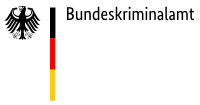Fires have many possible causes: arson, technical defects (in an electrical appliance, for example) or spontaneous combustion resulting from chemical or biological self-heating processes.
Fire Debris

 Explosion of a tank lorry loaded with liquid gas outside a synagogue in Djerba. The incident was reliably identified as a deliberate attack on the basis of the findings of forensic technicians and scene-of-crime specialists working on site.
Explosion of a tank lorry loaded with liquid gas outside a synagogue in Djerba. The incident was reliably identified as a deliberate attack on the basis of the findings of forensic technicians and scene-of-crime specialists working on site.
Fire investigators of the KTI support forensic science departments in the German states as well as police agencies and courts in investigating the causes of fires and the subsequent propagation of the fire. They may also be ordered to provide support by the Federal Attorney General at the Federal Court of Justice in specific cases, such as arson attacks against facilities of the Federal Republic of Germany, crimes motivated by hostility to foreigners, injuries suffered by German citizens in attacks on foreign soil or requests for legal assistance from foreign countries.
 Puddle-fire of petrol
Puddle-fire of petrol
Investigation into the possible causes of fires starts at the fire scene itself. Fire investigators must first identify the point or points of origin and then determine the subsequent propagation of the fire on the basis of evidence found at the scene. This hypothesis has to be reassessed frequently and modified if necessary. At the fire scene traces need to be documented and seized for further analysis at the laboratory. These include residues of flammable liquids, remains of incendiary devices or electronic devices which can be taken into consideration for a fire source after incorrect use.
 Combustion of flue gas
Combustion of flue gas
Another important element for the reconstruction of the course of a fire is the knowledge of the fire behaviour of the materials at the fire scene. For instance, for the fire growth it can be crucial whether a certain synthetic material can drip off when burning or not. In many cases these questions can only be answered on the basis of fire experiments under laboratory conditions.
 Gas chromatograms of diesel fuel and petrol
Gas chromatograms of diesel fuel and petrol
Commonly the liquids used to instigate a fire are technical mass products. Sophisticated instrumental analytics, which are constantly refined, and an extensive knowledge about substances and productions are required to gain information which can then be used as investigative leads for police investigators..
 Use of a detection dog to detect residues of accelerants
Use of a detection dog to detect residues of accelerants
Besides the practical work on refining the investigation methods, theoretical considerations are becoming increasingly important for an expert opinion. Since the course of a fire is subject to outside conditions which cannot be controlled, the outcome of a fire can vary with every repetition. Thus, a deep understanding of the involved physical processes is required to allow a valid interpretation of the dynamics of the process of incineration.
